 2023.11.13
2023.11.13
"Kids are consistent with brushing their teeth morning and night, so they shouldn't have any dental problems."
"Milk teeth will be replaced anyway, so they don't need to go to the dentist if their teeth don't hurt."
Do you think so too?

Recently, the China Dental Disease Prevention and Control Foundation released a national network survey on the oral health knowledge of Chinese residents, and for the first time, children's oral health issues were included in the scope of the research.
The results show that 60% of parents believe that they should pay attention to their children's oral problems when they start teething, and parents' awareness of children's oral care has increased.
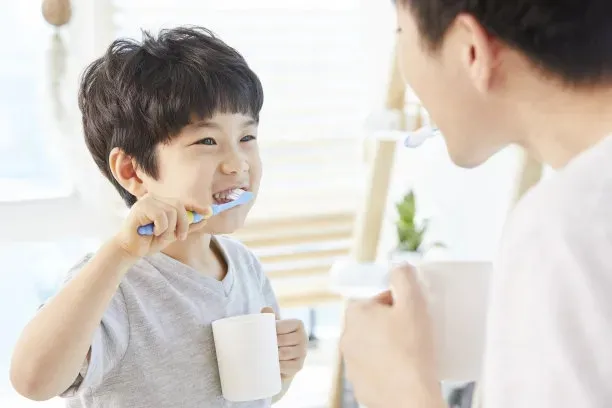
However, the data also found that parents had insufficient knowledge of specific measures for children's oral care and frequently fell into misconceptions.
Sweetrip's oral care experts remind that oral health is related to a person's lifelong health, and a good foundation must be laid at an early age. Parents can guide their children to develop good oral care habits such as brushing their teeth in the morning and evening, using fluoride toothpaste, visiting the dentist regularly, rinsing their mouths after meals or chewing sugar-free gum.

Oral care habits are related to a child's lifelong health Parents should not take this lightly!
The study found that although parents have become more aware of children's oral care, there is still a lack of awareness of oral health as an important health indicator - of the five indicators parents need to pay attention to in order to measure their child's healthy development, theOral health ranked second to last, with a low level of concern.
![]() The six-age teeth are the first four large teeth to erupt around the age of 6, which bear 60% of the chewing workload of the mouth, and are the only one in a lifetime, with no 'return service' for the rest of your life.
The six-age teeth are the first four large teeth to erupt around the age of 6, which bear 60% of the chewing workload of the mouth, and are the only one in a lifetime, with no 'return service' for the rest of your life.
If prematurely missing or carious, it will not only affect chewing and eating, but also cause disorders in the occlusal relationship, affecting the development of the jawbone, further affecting the child's facial aesthetics, which is not conducive to physical and mental health."
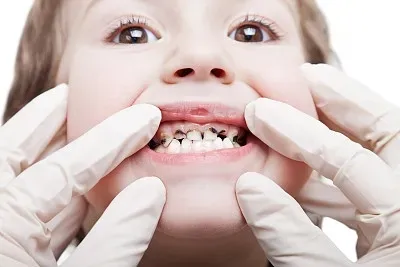
nevertheless![]() Ipso factoMany parents mistakenly believe that six-year-old teeth are milk teeth, even if they are decayed, there is no need to worry, and they will be replaced with new ones in the future, these misunderstandings are likely to increase the risk of caries in children.
Ipso factoMany parents mistakenly believe that six-year-old teeth are milk teeth, even if they are decayed, there is no need to worry, and they will be replaced with new ones in the future, these misunderstandings are likely to increase the risk of caries in children.
According to data from the National Dental Epidemiologic Survey, 90% of children 12 years of age with caries are fossa caries, almost all of which occur in the six-year-old teeth.
Figure China's residents of various age groups caries rate, caries average situation

Note: The fifth national oral health epidemiology has not yet been carried out, and data from the fourth national oral health epidemiology survey report in 2017 were taken
In the process of helping children develop good oral care habits, many parents are often "more than enough, not enough, or even not enough wisdom", resulting in a mouthful of rotten teeth nightmare eventually appeared in the child!
Many parents said, "I always thought that tooth replacement could solve the child's dental problems," "Teaching children to brush their teeth is really like a war, and it's a long-lasting war," "Their own teeth have been put out to pasture, and now they continue to put out the baby's teeth, all are tears ......".
Compare this to Japan, which takes children's oral health care very seriously!
In Japan, oral health education is provided from kindergarten onwards, including information on tooth brushing and oral health care. Schools regularly organize oral health lectures and invite dentists and other professional acquaintances to explain the importance of oral health to students.
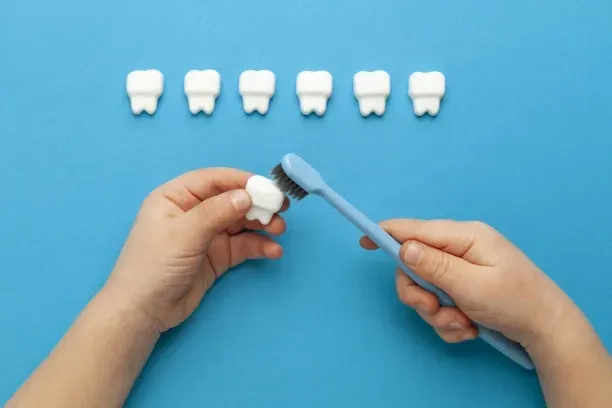
Also! Japanese kindergartens and elementary schools organize regular oral checkups, where professional dentists evaluate students' oral health and treat any problems promptly.
In Japan, there are many products specialized in children's oral health, such as children's toothpaste and children's toothbrushes. These products are more suitable for children's oral characteristics in terms of ingredients, taste and packaging.
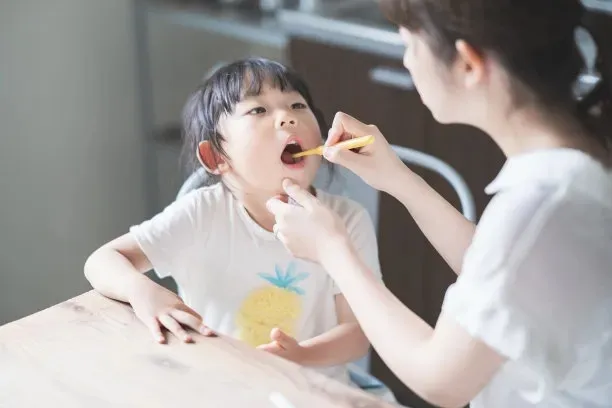
In conclusion, Japan attaches great importance to children's oral health, thanks mainly to the joint efforts of the Government, schools, families and medical institutions. These measures have helped to raise children's awareness of oral health and their ability to take care of themselves, and to reduce the incidence of oral diseases.
The "free-range" oral care habits have many hidden dangers, and Sweetrip's oral care experts advocate helping children develop good dental habits!
Children often eat snacks and beverages frequently in addition to their meals, so it's important to clean their mouths promptly after eating and drinking. Includes tips on proper brushing techniques, dental care, and the impact of diet on oral health.
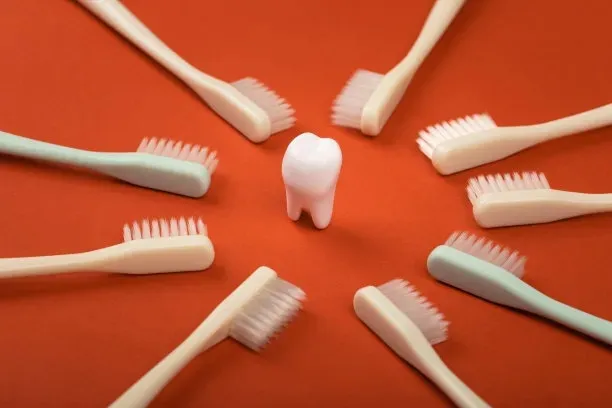
As a professional oral care brand, Sweetrip is committed to providing quality products to help people keep their mouths healthy and clean. Whether it is children's toothbrushes or children's toothpaste, other products, etc., each product is carefully designed and developed to meet the oral care without using age and needs.
Let's pay attention to oral health together and choose Sweetrip, so that every child can have healthy and white teeth!









